In pictures: Life for migrants in Idomeni refugee camp in Greece
- Published
As Turkish and EU leaders gather in Brussels for an emergency summit on tackling Europe's worst refugee crisis since World War Two, the plight of some 13,000 migrants stranded on Greece's border with Macedonia continues to cause concern.
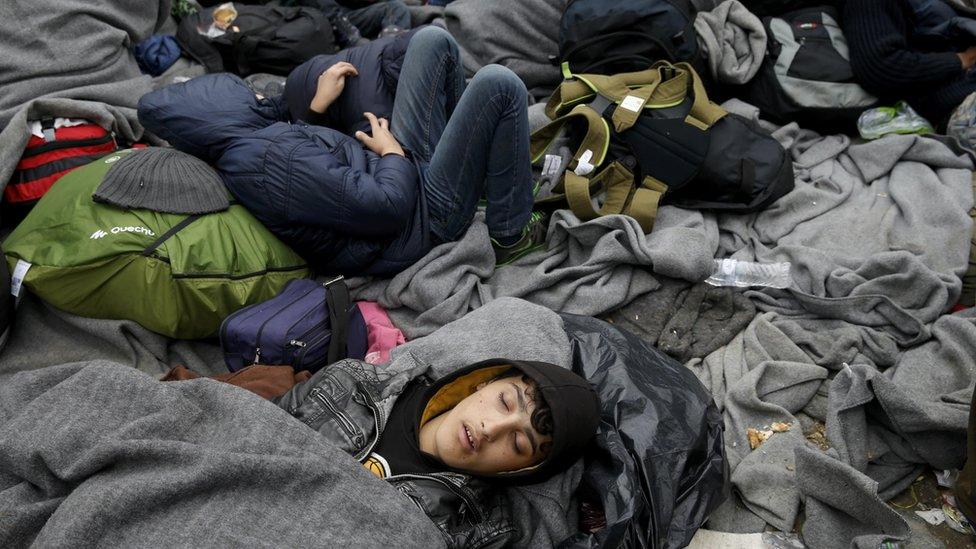
The sprawling Idomeni refugee camp on the Greek Macedonian border has become the latest flashpoint in the migrant crisis - Macedonia refuses to allow all but a few hundred to cross the frontier every day.
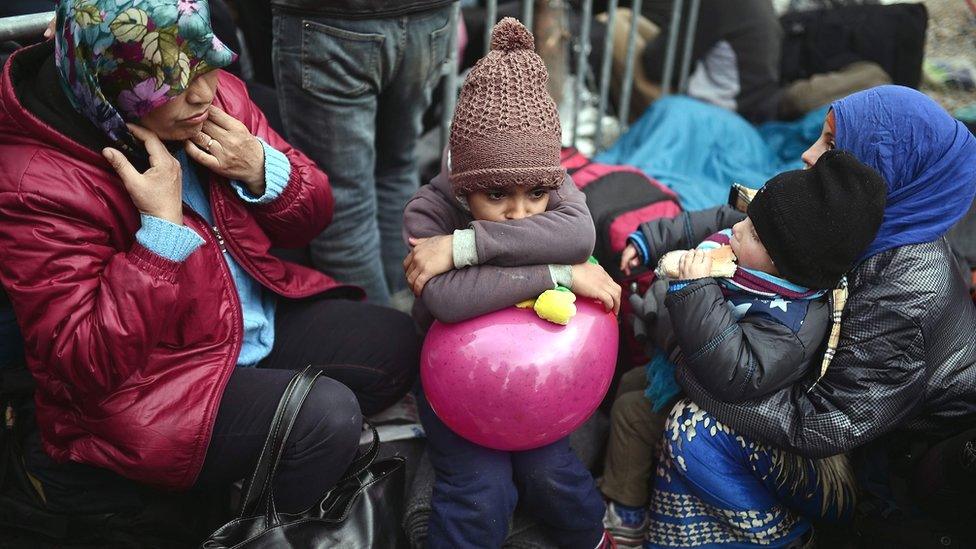
Migrants of all ages are camping in miserable conditions at Idomeni as they wait to cross the border.
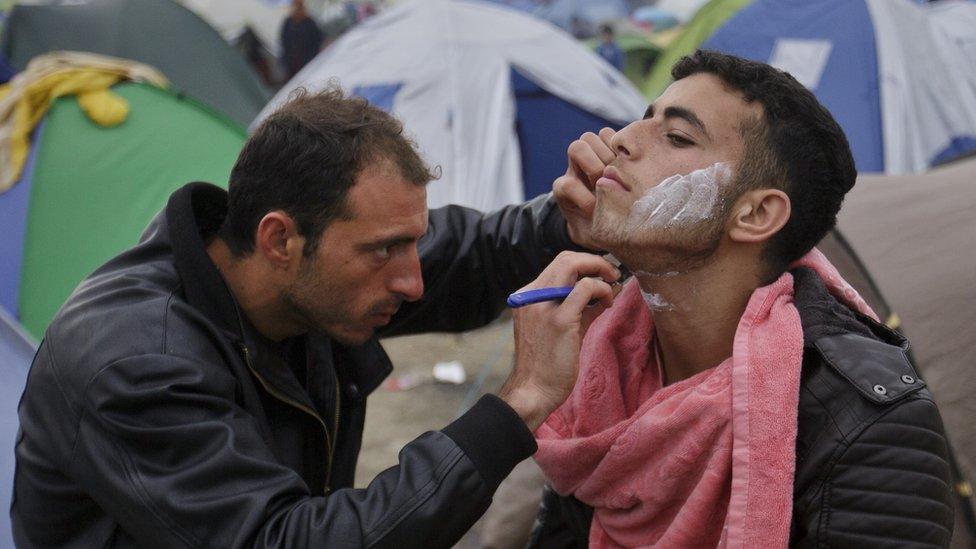
Those camping at Idomeni have to endure numerous hardships including cold weather and poor sanitation in addition to uncertainty about their futures.
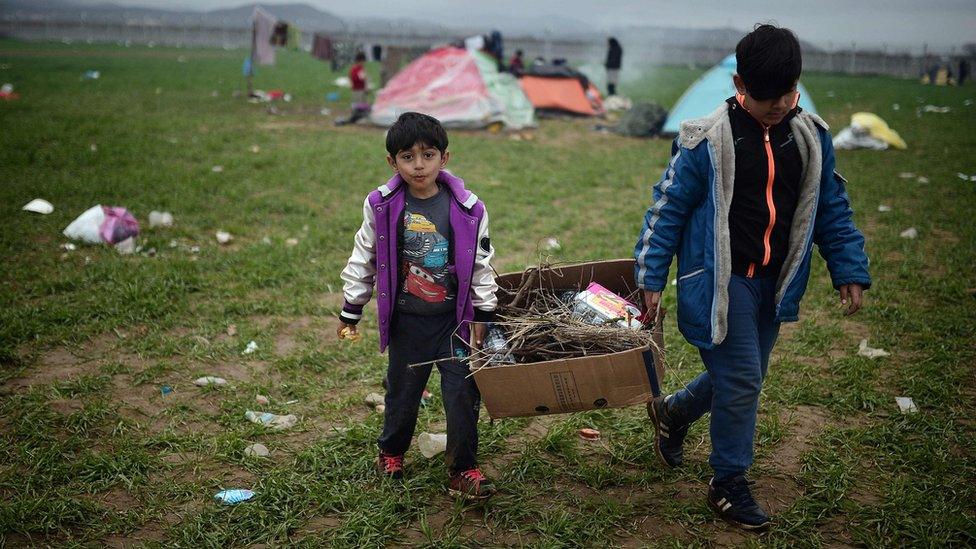
The main concern of families is to stay warm as they spend each night in flimsy tents.
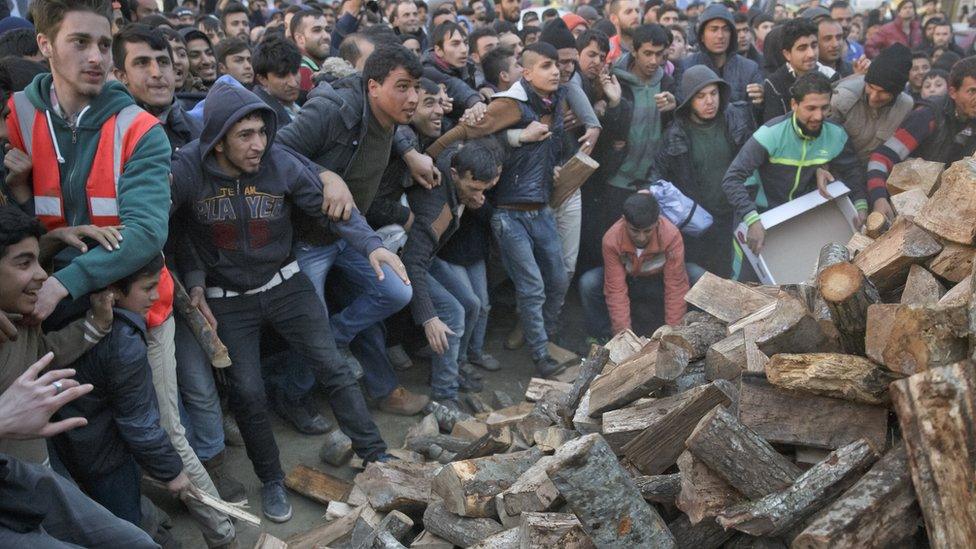
Migrants stranded at Idomeni rely on wood to keep warm...
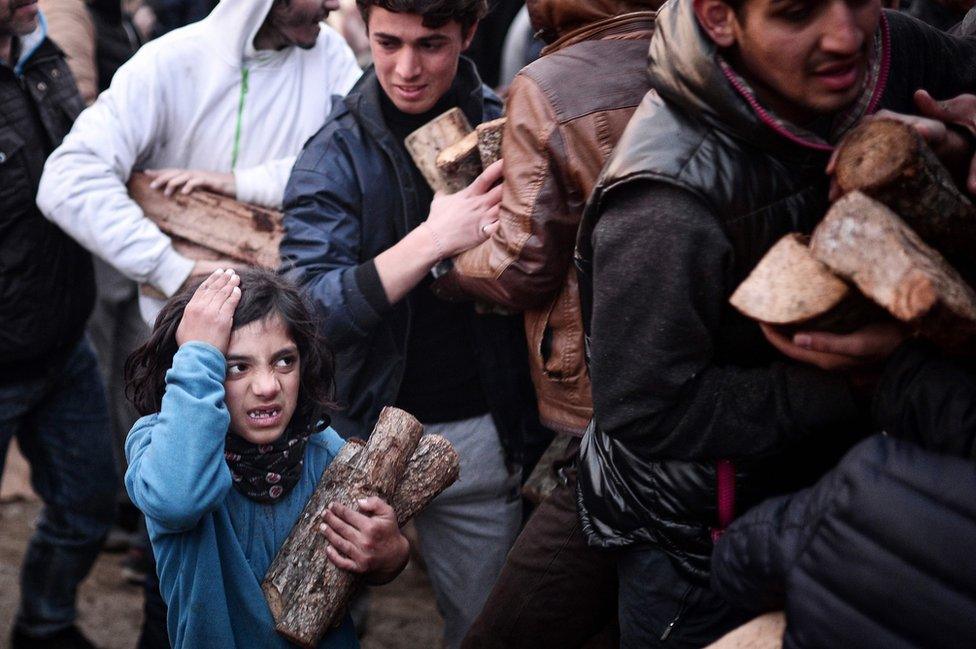
But often there is a woeful shortage of supplies.
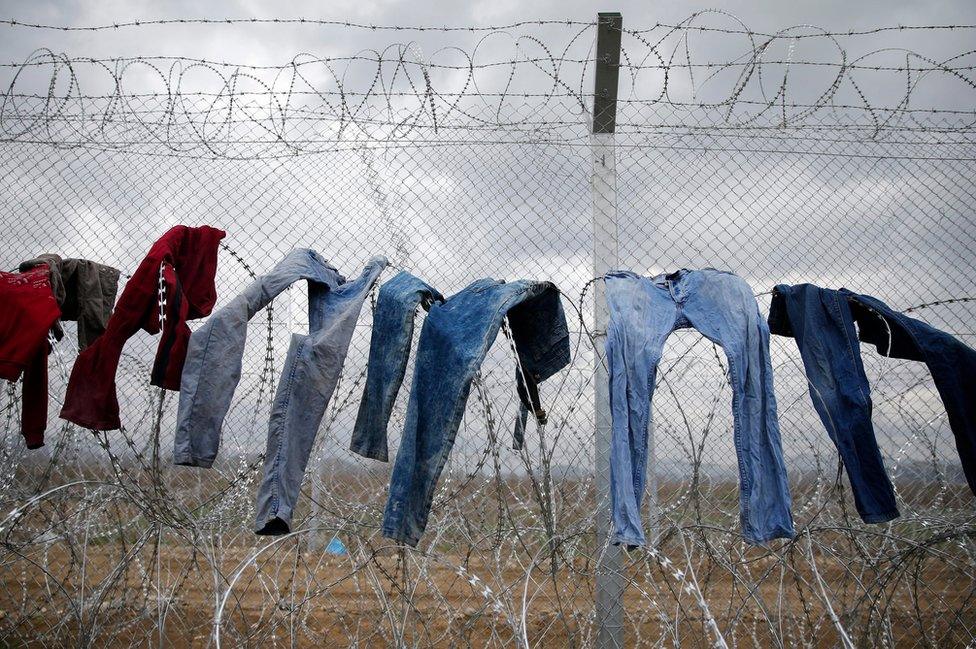
The barbed wire fence that marks the border is used as a makeshift washing line.
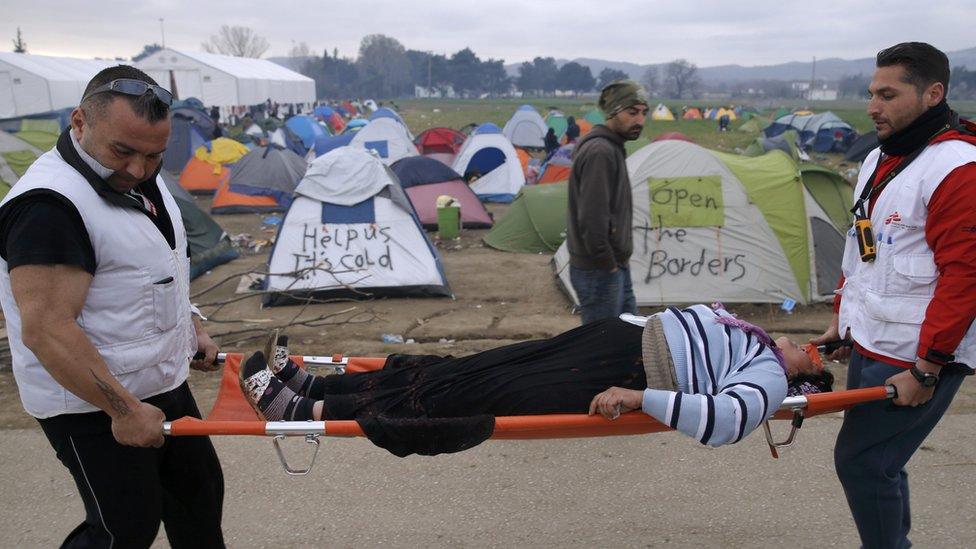
The UN and the aid charity Doctors Without Borders (MSF) have warned for several days now that food distribution and sanitation provision are being stretched to breaking point at Idomeni.
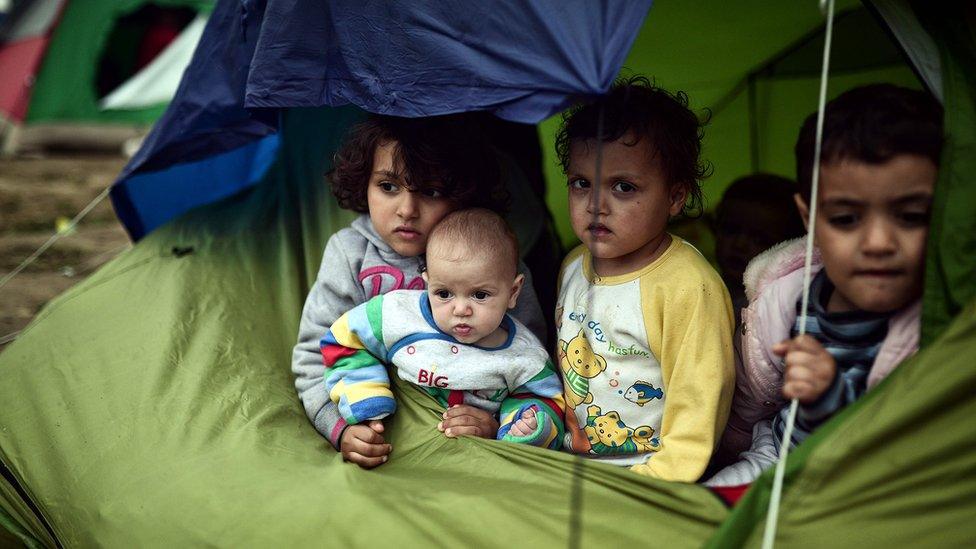
Aid agencies are particularly concerned about the plight of children at Idomeni - they warn a growing number are suffering from respiratory infections.
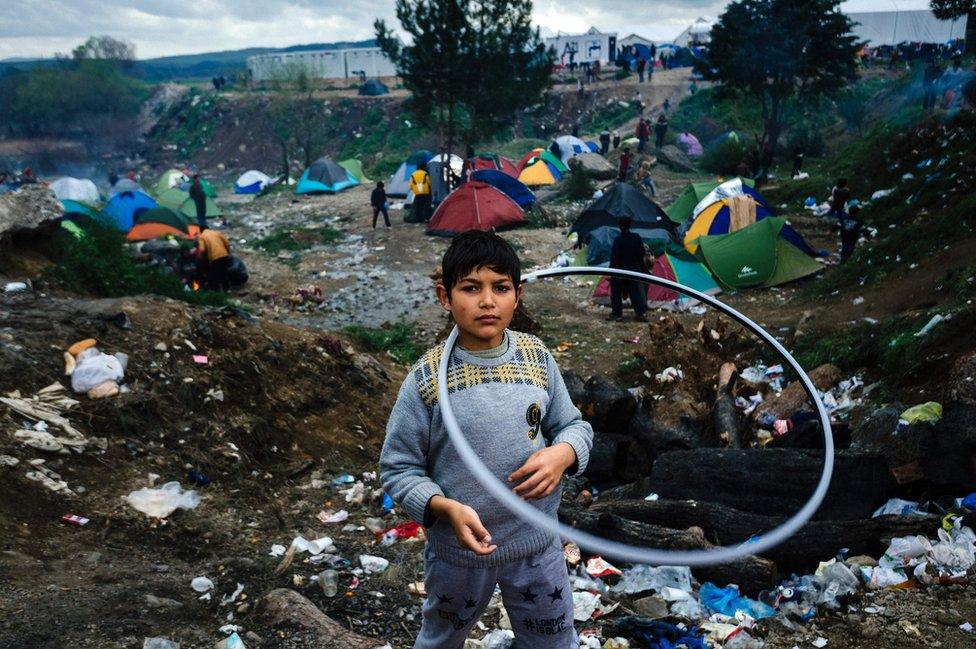
And there is little for the children to do apart from wait.
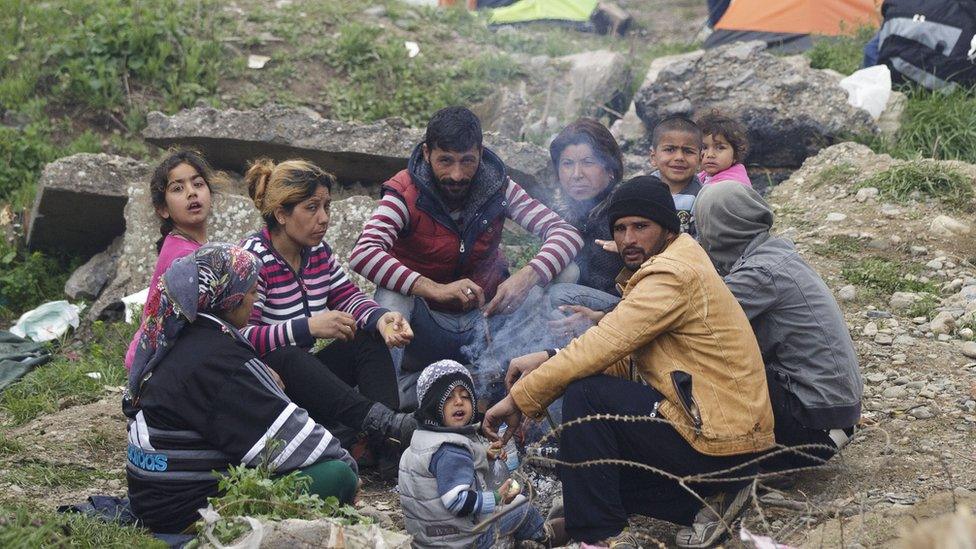
Greece says that it risks being overwhelmed by the migrant crisis and is appealing for the EU to help out.
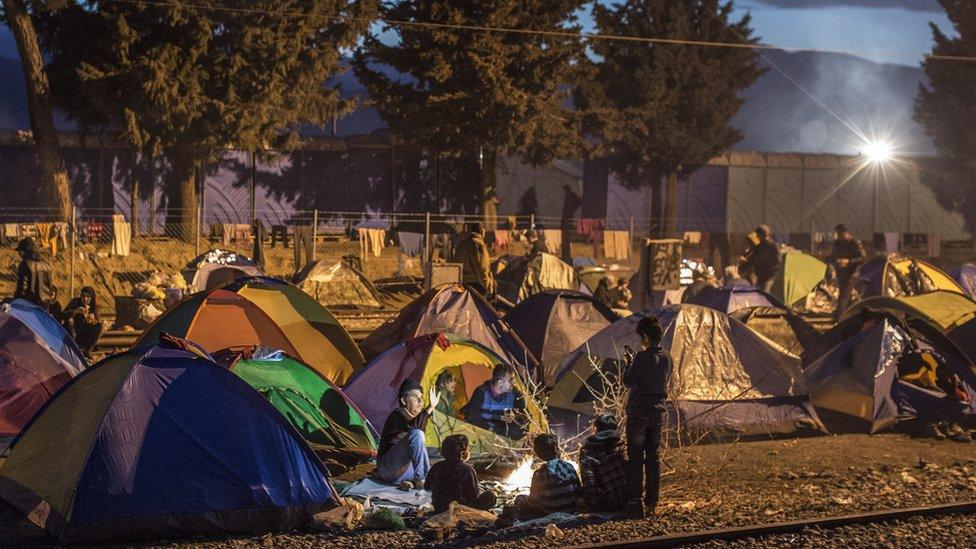
There are thousands of multi-coloured and flimsy tents at Idomeni, all clustered together in a farmer's field just outside the village.
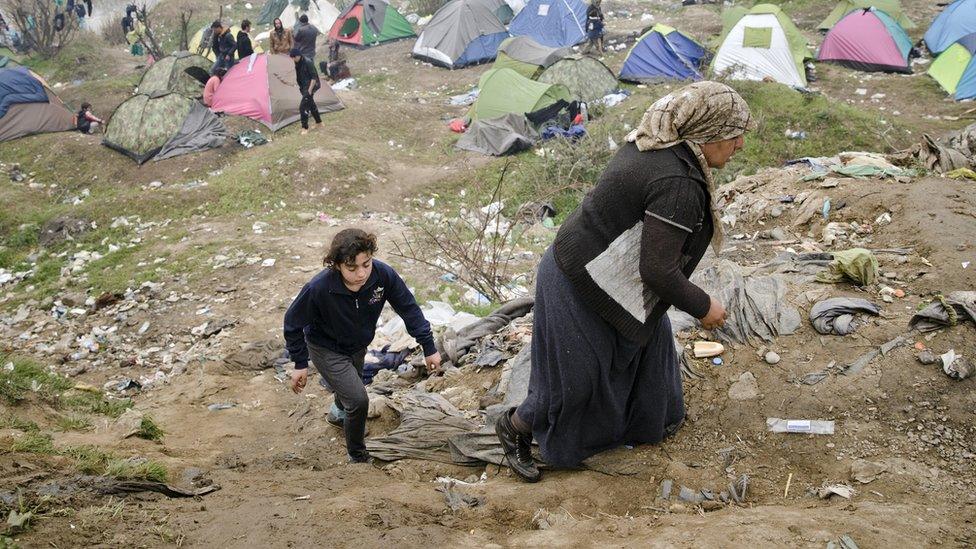
Refugees prefer to stay at Idomeni rather than other camps set up by the Greek government further away from the border because they believe it will earn them a better place in the queue waiting to cross into Macedonia.
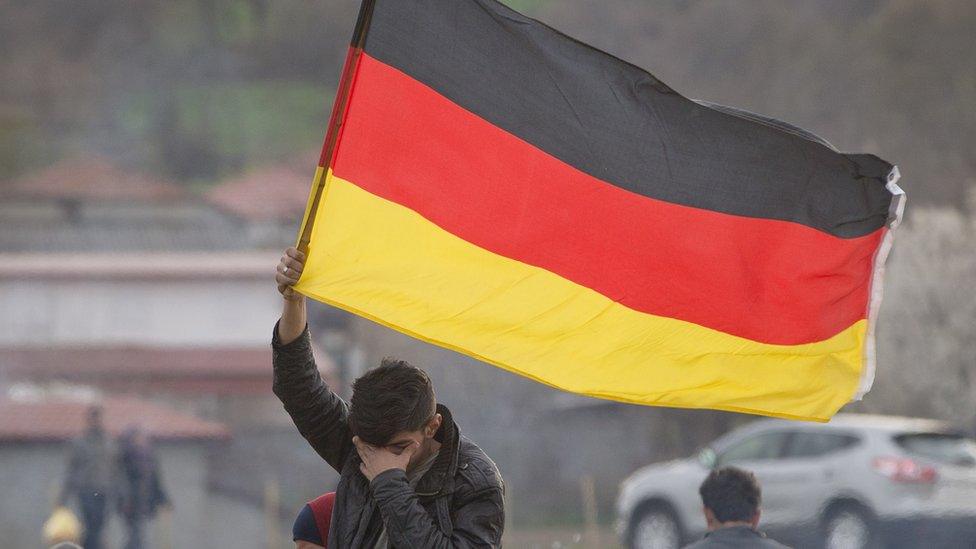
The ultimate destination for many migrants at Idomeni is Germany - although that country at the moment seems a long way away.
A note on terminology:
The BBC uses the term migrant to refer to all people on the move who have yet to complete the legal process of claiming asylum. This group includes people fleeing war-torn countries such as Syria, who are likely to be granted refugee status, as well as people who are seeking jobs and better lives, who governments are likely to rule are economic migrants.